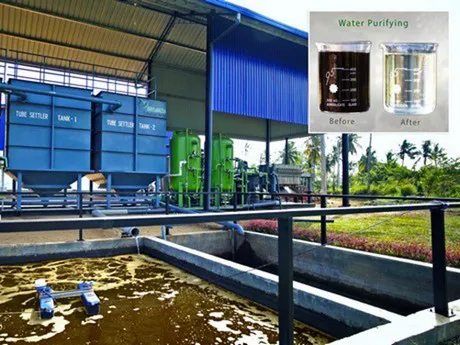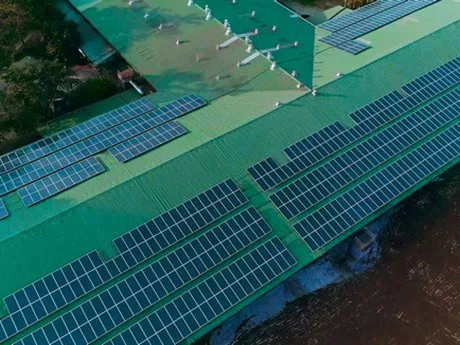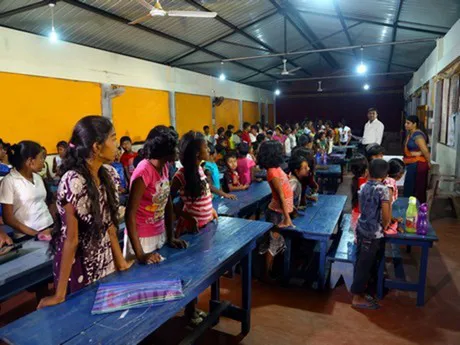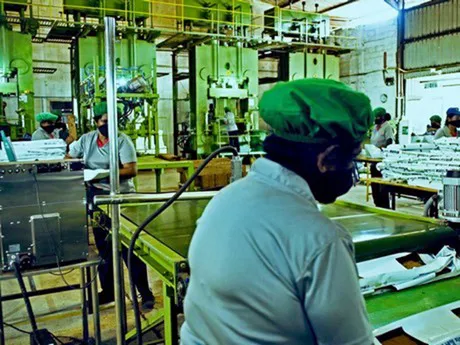The global horticulture industry uses a lot of coco substrate, much of which is sourced from Sri Lanka. Such large-scale production sounds like it would be a strain on the country's environment, but if it's up to Growrite, that won't be the case. The company is all about producing their substrates as sustainably as possible. Dinesh Fernando, the company's managing director, tells us how.

Best practices
Dinesh highlights the company's best practices. They focus on lessening the amount of water used in processing coco, and implement energy efficient technologies in the production process.
The company also adopts a policy of environmentally safe production processes. As Dinesh explains, they engage in "state-of-the-art wastewater treatment facilities in our production locations to purify discharge effluent. We are working with experts in the industry now to develop methods to recycle our water in the washing process moving towards a closed loop system."
'Energy-neutral by 2022'
The substrate producer also takes into account the environmental impact of its energy use. Last year they completed a project installing 400 kW of solar power over the roofs of Growrite factory buildings, completely setting off their energy consumption. Their goal is to be 100% energy neutral by 2022 in all production locations.

"At Growrite, we now generate and supply more clean energy to the national grid than we consume", Dinesh continues. "This is a significant environmental and economic benefit as Sri Lanka depends on diesel power generation for a large part of electricity supply.
"Hence, we progressively take steps to operate all our facilities with 100% renewable energy reaching zero carbon emission. It is our ambitious goal to reach 'Net-Zero Status' for GHG emissions from energy through our sustainability program by increasing energy efficiency and addressing the remaining need by renewable energy."
Replacing lost coconut trees
Not only are Growrite supplying the country with energy, they also make sure to plant new coconut trees to offset the production of coco substrate. "With urbanization and other infrastructure development projects taking up land space in Sri Lanka, we see a need to address an emerging concern of the ageing coconut tree population and shrinking of the existing land area for coconut crop plantation."

Anagathaya Wawamu
The ‘Anagathaya Wawamu’ (Grow your future) is a project initiated to support resource sustainability and inculcate the culture of growing a habit amongst families and children to grow the coconut trees in order to contribute towards the development of crops required to fulfill the industry demand.
This initiative was launched in 2018 with an ambitious goal of planting 100,000 coconut plants by 2021 towards fulfilling a national obligation. "We have successfully engaged all our team members, supply chain partners and the community to reach our objective of contributing to the national drive to increase the coconut crops in the country for sustained growth and development of the industry", Dinesh says. "In addition, we have commenced coconut plant nurseries at our premises monitored by the Coconut Cultivation Board and The Coconut Development Authority of Sri Lanka to ensure that quality seedlings are produced to strengthen this initiative."

The planting of new coconut trees not only supplies the substrate industry with new resources. "Coconuts are a good source of carbon dioxide sequestration", Dinesh explains. "We see this initiative as an instrumental drive in protecting and preserving our natural environment while supporting an entire community through direct and indirect income producing opportunities, which not only elevate their standards of life, but contribute towards the national economic development through foreign exchange earnings of coconut exports."
The future of the coconut industry
Due to the high world demand for coco products both edible and non-edible there is a renewed interest in coconut cultivation across all coconut growing countries. Dinesh identifies a number of challenges in increasing coconut land and coconut cultivation: The requirement of vast land area, water availability, the long waiting period to start earning a return on their crop investment, which could lead up to 7 years. (long gestation period), climate change and the increasing labour cost
"In order to overcome these challenges, we must adopt new methods and drive with the expectation of seeing a positive outcome and unique value additions", Dinesh says, pointing to the following possible solutions: Introducing and developing hybrid varieties resistant to diseases and climatic changes through research, Drip irrigation for efficient distribution of water and fertigation, rainwater harvesting and intercropping for higher returns from a hectare of plantation
"The Sri Lankan coco substrates industry is moving towards gearing up to meet the demands of the quality standards that are required by the professional growers around the world, while being more careful about the phytosanitary and environmental aspects. Sri Lankan authorities under the Ministry of Plantation Industries have come up with a variety of schemes to ensure that the standards and good practices prevail in the industry."

Van der Knaap
"As an organization that advocates environmental sustainability, strong product quality and the well-being of people, with the unwavering support of our partners Van der Knaap Group, Netherlands, we will continue to invest in new technology, R&D as well as training development of our staff ensuring value addition from inception to end, leading to the successful outcome to our esteemed clients. True to our mission we will passionately pursue product and process innovation to ensure that our stakeholders achieve their goals, in order to realize our vision of being the ‘world’s leading sustainable coco solutions provider’", Dinesh concludes.
For more information:
Euro Substrates (Pvt) Ltd.
Dinesh Fernando, Managing Director
[email protected]










